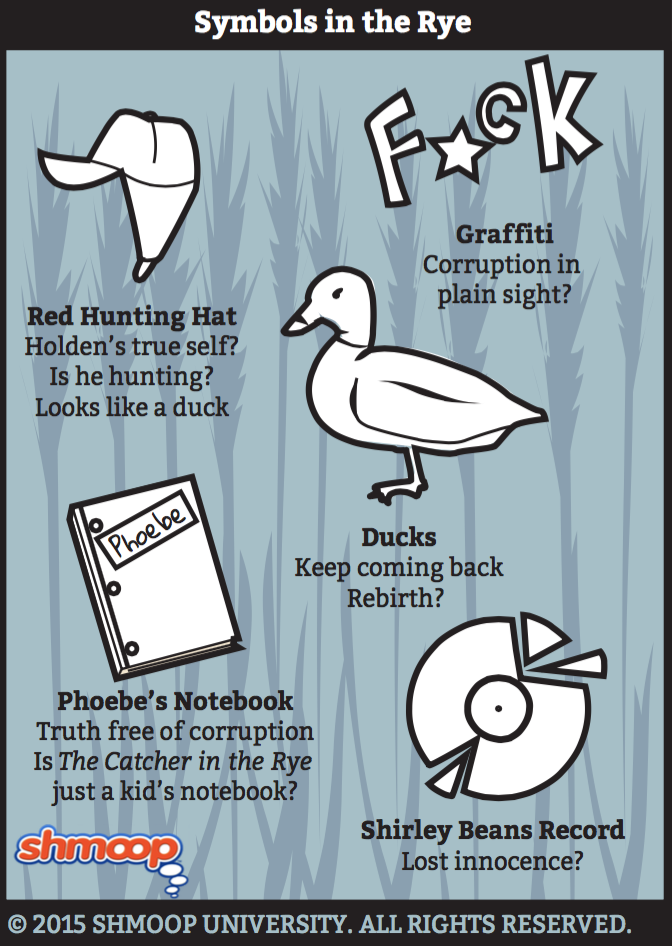Symbolism, Imagery, Allegory

(Click the symbolism infographic to download.)
As far as we can tell, there's only one place in the entire novel where Holden declares himself to be really happy. So happy, in fact, that he's "damn near bawling." And that moment is at the end of his narrative, in Chapter Twenty-Five, as he's out in the rain watching Phoebe go around and around on the carousel. She just looks so nice, he says, in her blue coat, going around and around.
But there's more to this sunny jubilance than a kid on a carousel. A few things have just happened: (1) Holden decided that, after all, he's not going to run away, (2) Phoebe put his hunting hat back on his head, and (3) just maybe, Holden has realized that growing up isn't the worst thing in the world.
Of course, number three up there is subject to debate. We're mostly talking about Phoebe's grabbing for the gold ring, and Holden's thought that "the thing with kids is, if they want to grab for the gold ring, you have to let them do it, and not say anything. If they fall off, they fall off, but it's bad if you say anything to them" (25).
If you’re like us and under the age of, say, 65, you might have been scratching your head at the gold ring business. Here’s the deal: old carousels would liven things up a bit by releasing various-colored rings down a wooden chute on the outside of the carousel. If you timed it right, you could reach up and grab the ring—at great risk to life and limb, naturally. But it was worth it: you could redeem the ring for prizes like a free ride. (A teeny handful of carousels operating today still offer the ring game.)
When Holden concludes that you have to just let a kid reach, even though they might get hurt doing so, he might be saying admitting (although he probably doesn't realize it himself) that growing up is in fact necessary—for Phoebe and for himself; you can't really protect a kid from it, so it's better to just accept it as it is. Or he could just be talking about a gold ring.